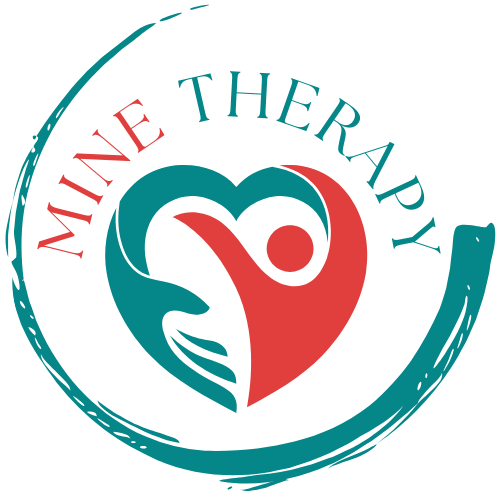The basic idea that forms the cornerstone of cognitive therapy is examined in the blog post “Which Principle Underlies Cognitive Therapy?” It explores the theoretical underpinnings of cognitive therapy as well as its historical context in an effort to clarify the basic idea that directs therapeutic procedures. By comprehending this idea, readers will be able to appreciate the basic tenets.
Table of Contents
Methodology of cognitive therapy, paving the way for a more thorough examination of these ideas and their applicability to a range of mental health issues.
Cognitive Behavioral Therapy
The goal of cognitive behavioral therapy (CBT), a popular and scientifically validated type of psychotherapy, is to assist people in overcoming mental health obstacles by addressing the relationships that exist between ideas, feelings, and behaviors. Fundamentally, cognitive behavioural therapy (CBT) is based on the idea that our ideas affect our emotions and behaviours and that we can reduce discomfort and enhance functioning by altering unhelpful thought patterns.
CBT is very goal-oriented and systematic, and it usually involves the client and therapist working together. Through a variety of strategies, including behavioral experiments, cognitive restructuring, and homework assignments, people can learn to recognize and question harmful thought patterns and behaviors in order to replace them with more adaptive ones.
Many psychological problems, such as depression, anxiety disorders, eating disorders, PTSD, and substance use disorders, have been successfully treated using cognitive behavioral therapy (CBT), according to a large body of research. Its pragmatic methodology, attention to contemporary concerns, and focus on developing skills make it a flexible and effective instrument in the field of mental health therapy.
Benefits of Cognitive Therapy
For those with a range of mental health concerns, cognitive therapy, sometimes referred to as cognitive-behavioral therapy (CBT), has numerous advantages. Here are a few main benefits:
Effective Treatment:
Cognitive therapy has been well studied and shown to work well for treating a variety of mental health issues, such as PTSD, OCD, depression, anxiety disorders, and more.
Lasting Results:
Cognitive therapy frequently yields notable changes in a comparatively short amount of time, in contrast to certain forms of treatment that can need ongoing care. Even after finishing a cognitive therapy course, many people report long-lasting, favorable benefits.
Focus on Present Issues:
Rather than extensively exploring past experiences, cognitive therapy concentrates on resolving present issues and symptoms. This realistic strategy may produce more noticeable outcomes and more instant alleviation.

Empowerment:
Cognitive therapy gives patients the tools they need to control their emotions, ideas, and behaviours effectively. Through the development therapy of techniques to confront and alter problematic thought patterns, clients gain increased autonomy and self-efficacy.
Customized Approach:
Cognitive therapy is quite flexible and may be made to fit each person’s specific requirements. Together, therapists and clients create individualized treatment programs that address each client’s unique needs and goals.
Decreased Relapse Rates:
Research has demonstrated that cognitive therapy skills can help avoid relapse and the recurrence of mental health symptoms, offering long-term advantages even after therapy is finished.
Better Life Quality:
Individuals undergoing cognitive therapy frequently report gains in relationships, career, and general well-being, among other areas of their lives, as a result of learning to control their thoughts and emotions better.
What Diseases Can Treated With Cognitive Therapy?
There is proof that cognitive treatment, commonly referred to as cognitive-behavioral therapy or CBT, is beneficial in treating a variety of mental health conditions. The following are a few illnesses and ailments that cognitive therapy can help with:
- Depression: Cognitive Behavioral Therapy (CBT) is one of the most researched and successful therapies for depression. It assists people in recognizing and combating harmful thought patterns as well as creating coping mechanisms to control depressed symptoms.
- Anxiety Disorders: This category covers disorders like obsessive-compulsive disorder (OCD), panic disorder, social anxiety disorder, generalized anxiety disorder (GAD), and particular phobias. Through exposure techniques and cognitive restructuring, CBT teaches people how to face and control events that cause anxiety.
- Post-Traumatic Stress Disorder (PTSD): CBT is frequently used to treat PTSD, especially trauma-focused CBT. It aids in the processing of traumatic events, the management of upsetting symptoms, and the restoration of personal agency.
- Obsessive-Compulsive Disorder (OCD): Cognitive Behavioral Therapy (CBT) is a useful treatment for obsessive-compulsive disorder (OCD). ERP techniques, which help people confront and lessen compulsive behaviors and ideas, are frequently incorporated into CBT sessions.
- Eating Disorders: Research has demonstrated that cognitive behavioral therapy (CBT) is effective in treating eating disorders, including anorexia nervosa, binge eating disorder, and bulimia nervosa. It focuses on altering unhealthy attitudes and practices about food, weight, and body image.
- Substance Use Disorders: Alcohol and drug addiction, as well as other substance use disorders, are frequently treated with cognitive behavioral therapy (CBT). It aids in the identification of drug-use triggers, the development of coping mechanisms to control impulses and cravings, and the treatment of underlying psychological problems that underlie addiction.
- Insomnia: For the treatment of sleep disorders, cognitive-behavioral therapy for insomnia (CBT-I) is a particular kind of CBT. It focuses on encouraging sound sleeping habits and altering attitudes and actions that disrupt sleep.
Which Principle Underlies Cognitive Therapy?
The fundamental tenet of cognitive therapy is that our emotions and behaviors are greatly influenced by the thoughts, beliefs, and interpretations we have. This idea is derived from the mental model of psychopathology, which contends that skewed or negative thought processes cause dysfunction and psychological discomfort. This paradigm states that people frequently acquire cognitive biases or illogical ideas that affect how they see the world, other people, and themselves.
Cognitive therapy is a systematic, collaborative approach to help uncover and overcome these dysfunctional cognitive habits. Working with a therapist helps people become more objective in their recognition and assessment of their thoughts, challenging the integrity and accuracy of unfavorable beliefs. Through methods like cognitive restructuring, people can learn to swap out their erroneous ideas for ones that are more adaptable and realistic. Through this process, they may see how their thoughts, feelings, and behaviors are connected, which gives them the confidence to make healthy adjustments in their lives.

In the end, cognitive therapy is based on the idea that altering cognitive processes is crucial for reducing emotional distress and advancing psychological health. People can develop more robust coping mechanisms and healthier views to overcome obstacles in life by addressing the underlying causes of negative thought patterns.
Cognitive Behavioral Therapy For Kids
Children and adolescents can benefit from specialized therapy called cognitive-behavioral therapy (CBT), which teaches them how to control their emotions, ideas, and behaviors. The following are some essential elements of child-specific CBT:
Recognizing Developmental Differences:
CBT therapists are taught to identify the stages of child development and modify their approaches accordingly. When creating treatment programs, they take into account elements including emotional development, language proficiency, and cognitive ability.
Active and Engaging Techniques:
To keep kids interested in therapy sessions, cognitive behavioral therapy (CBT) frequently uses innovative and engaging activities. Games, role-playing, storytelling, painting, and other developmentally appropriate interventions can be used to help children find therapy engaging and relatable.
Recognizing and Challenging Thoughts:
Kids are taught to recognize the harmful or unproductive ideas and attitudes that fuel their emotional turmoil or behavioral issues. By showing them evidence to the contrary and teaching them more practical and adaptive ways of thinking, therapists assist clients in challenging these beliefs.
Learning Coping Skills:
Kids receive instruction on effective coping mechanisms to handle challenging emotions, including anger, sadness, and anxiety. These abilities could include social skill development, assertiveness training, problem-solving approaches, and relaxing techniques.
Behavioral Experiments and Exposure:
Behavioral experiments and exposure exercises may be used in CBT with children based on their requirements in order to help them face their anxieties, break through avoidance patterns, and develop self-confidence in confronting obstacles.
Involving Parents and Caregivers:
Parental and caregiver participation is common in cognitive behavioral therapy (CBT) for kids. In addition to learning strategies to assist their child’s development at home, they could take part in therapy sessions and work together with the therapist to reinforce skills acquired throughout treatment.
Tailored to Specific Issues:
Cognitive Behavioral Therapy (CBT) is a useful tool for treating a variety of childhood problems, such as anxiety disorders, depression, ADHD, trauma, behavioral issues, and difficulties adjusting to new situations. Therapists adapt their treatment plans to each child’s particular needs and situation.
Side effects of Cognitive Therapy
Most people regard cognitive treatment, commonly referred to as cognitive-behavioral therapy (CBT), to be safe and well-tolerated. Like every therapy or treatment, there may be certain drawbacks or difficulties, though:

- Emotional Discomfort: When confronting and challenging harmful thought patterns or challenging situations, people undergoing cognitive therapy may feel uncomfortable for a while or experience elevated emotions. As treatment advances, this discomfort usually lessens and is a natural component of the therapeutic process.
- Enhanced Awareness: A major goal of cognitive therapy is to help patients become more conscious of their feelings, ideas, and actions. For some people, this greater self-awareness may feel overpowering or disturbing at first, even though it can have long-term benefits.
- Resistance or Disengagement: When asked to examine deeply rooted ideas or behaviors, some people may at first reject or feel uncomfortable about engaging in cognitive therapy. In order to address any resistance and foster a supportive atmosphere for transformation, therapists collaborate with their clients.
- Temporary Increase of Symptoms: Before symptoms get better, people occasionally endure a brief worsening of their symptoms. This could happen when people start to question unhelpful mental patterns or deal with stressful circumstances. But these flare-ups are usually transient, with observable relief occurring eventually.
- Dependency on Therapy: Although the goal of cognitive therapy is to equip patients with coping mechanisms and techniques, some patients may grow dependent on therapy or the therapist. Therapists encourage their clients to apply the skills they have gained in therapy to their everyday lives in an effort to help them become more independent and self-reliant.
- Not Suitable for Everyone: Although many people find cognitive therapy to be successful, there might be better options for some patients or all conditions. People must engage with a licensed therapist who is capable of evaluating their needs and making recommendations for the best course of action.
Conclusion
In conclusion, the essential tenet of “Which Principle Underlies Cognitive Therapy?” is that our thoughts have a substantial impact on our emotions and behaviours. Through the identification and resolution of erroneous or detrimental cognitive processes, people can efficiently mitigate psychological suffering and enhance their general state of health. By providing useful methods and approaches for recognizing and altering these thought patterns, cognitive therapy enables people to take charge of their mental well-being. Recognizing this idea offers a strong basis for accepting cognitive therapy as an effective means of treating a range of mental health issues.
FAQs
Q: What distinguishes cognitive therapy from other types of treatment?
A: While other therapies may employ different approaches, such as reviewing past experiences or focusing on behavioural changes alone, cognitive therapy focuses explicitly on recognizing and confronting negative thought patterns that contribute to emotional suffering.
Q: Is cognitive therapy useful in the treatment of long-term mental health issues?
A: It has been demonstrated that cognitive therapy works well in treating long-term illnesses like anxiety and depression by giving patients useful coping mechanisms to help them avoid relapsing.
Q: Is cognitive therapy appropriate for teenagers and younger adults?
A: Indeed, therapists can modify cognitive therapy for kids and teens by employing age-appropriate methods and strategies to meet their specific requirements and developmental stages.
Q: How long does cognitive treatment usually take to show results?
A: After beginning cognitive therapy, many people report noticing changes between a few weeks to a few months, while exact results may vary depending on the individual and their unique issues.
Q: Is cognitive therapy effective for everyone?
A: Although many people find cognitive therapy to be quite successful, there might be better options for some situations or people. Working with a licensed therapist who is capable of evaluating each patient’s unique needs and making recommendations for the best course of action is crucial.

